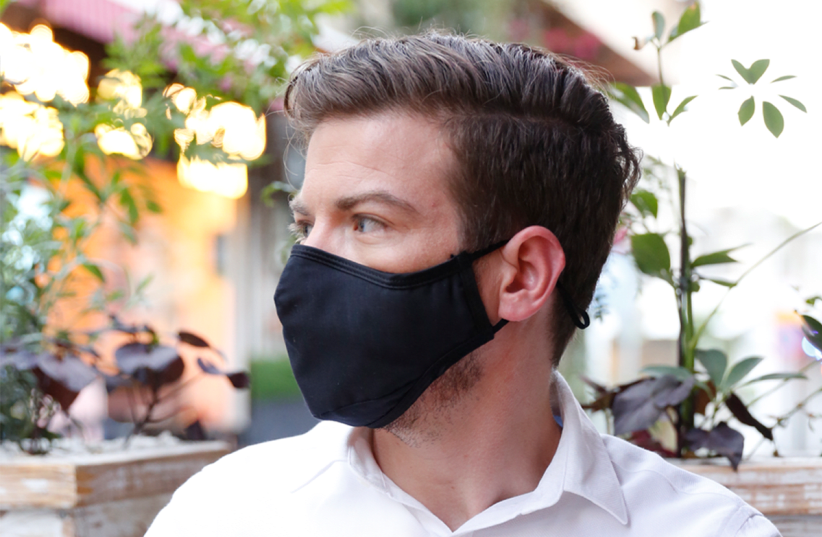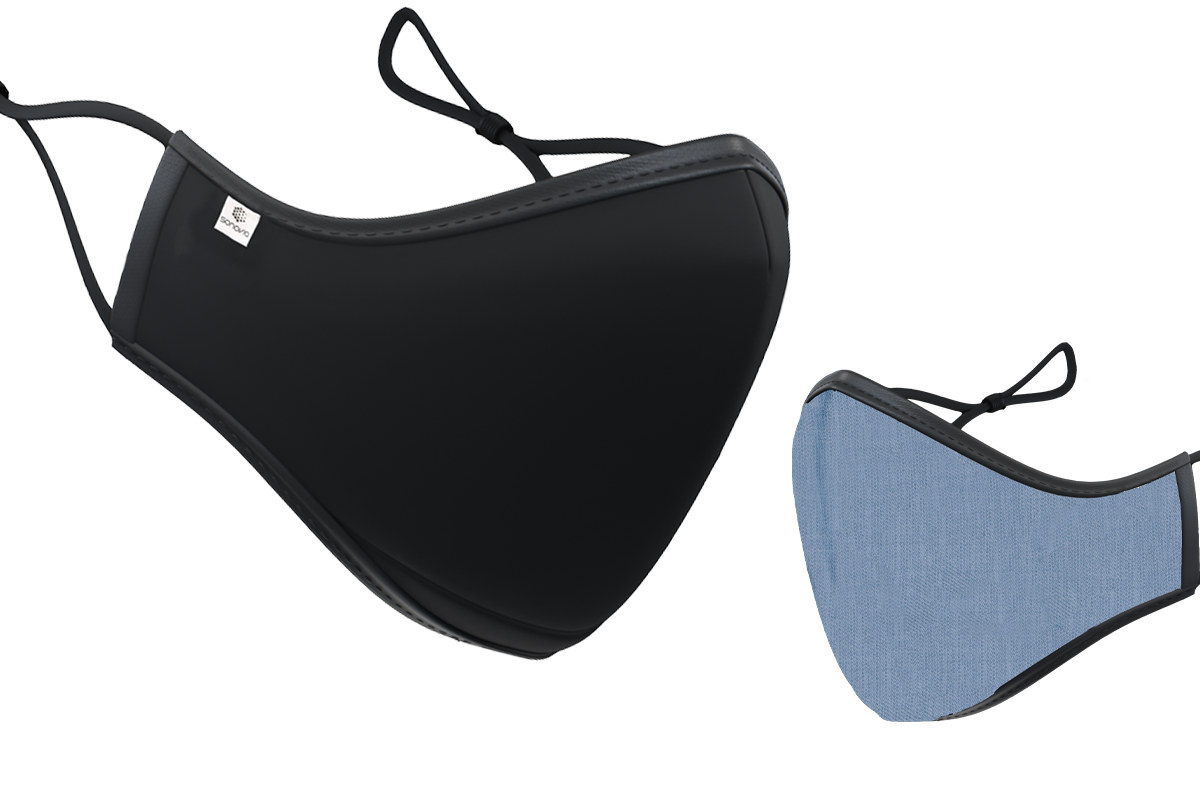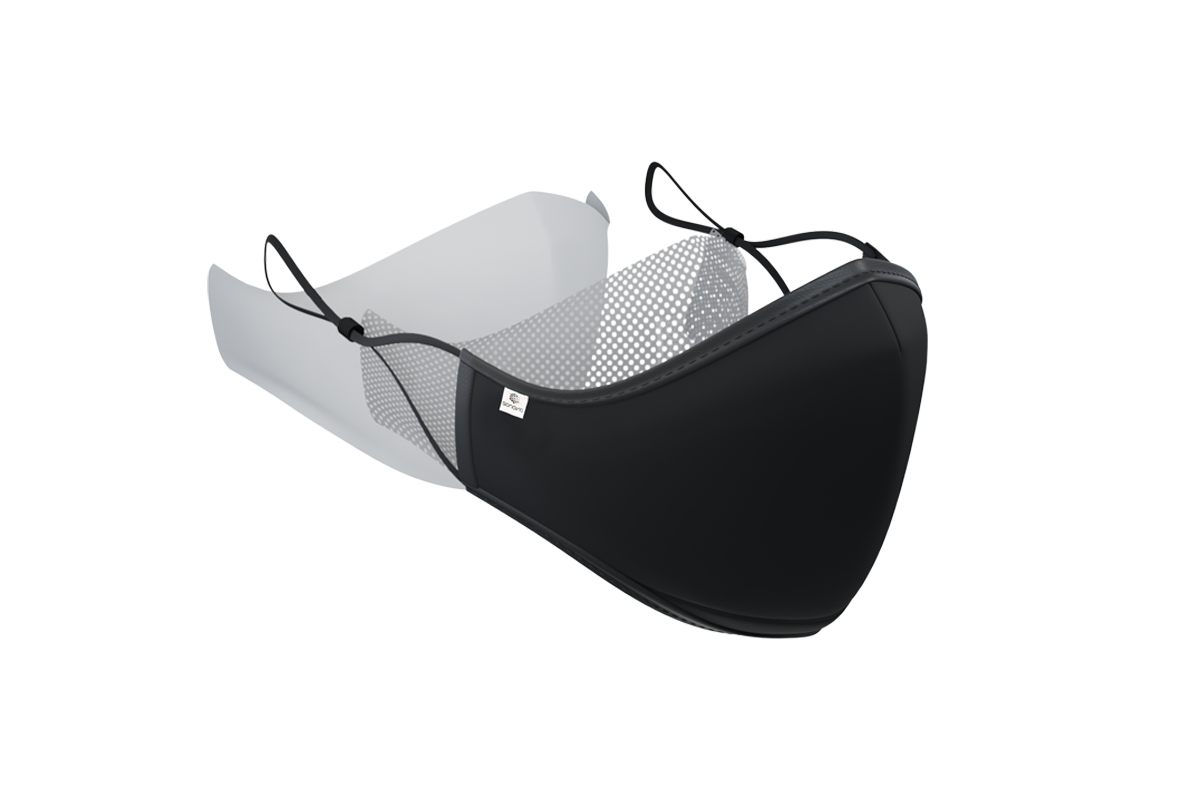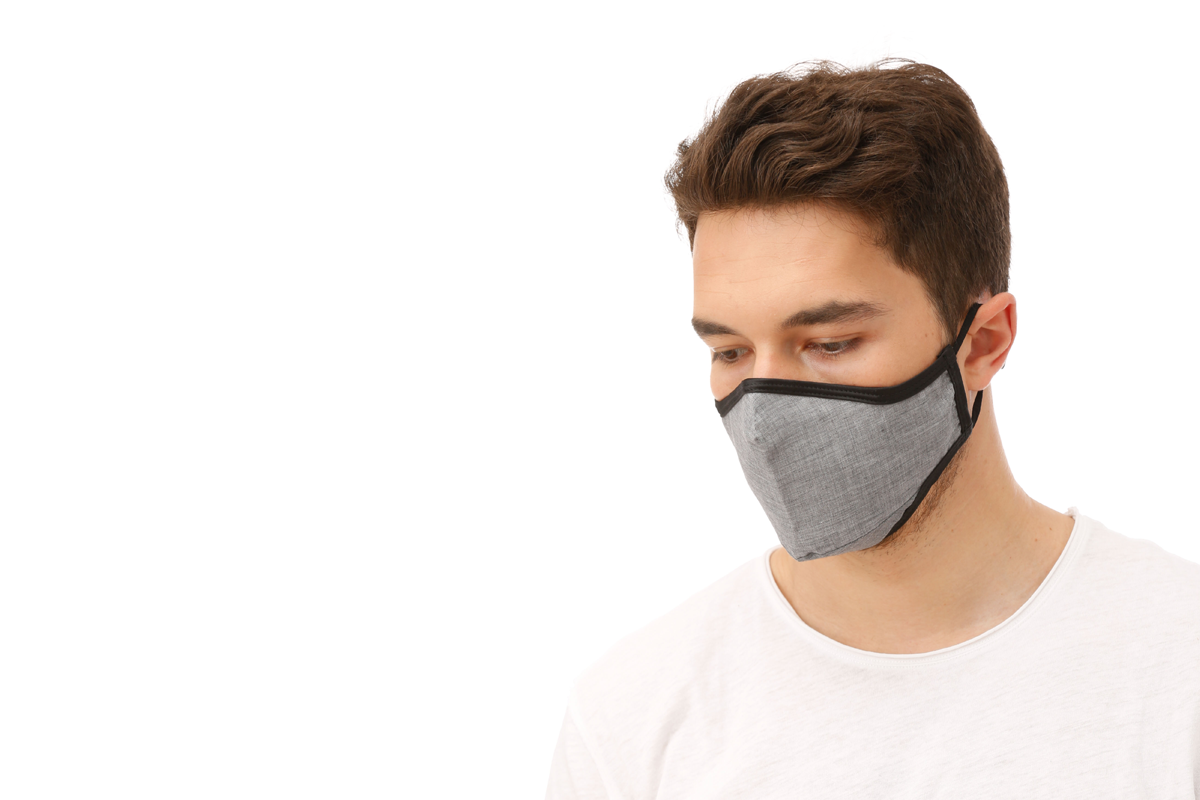The Israeli mask company Sonovia has released a report from a leading Italian textile-testing laboratory showing that its fabric eliminates the COVID-19 Delta variant particles with over 99.95% effectiveness.
At the announcement of the results, the company’s stock spiked by nearly 30%, company founder Shuki Hershcovich told The Jerusalem Post on Sunday during a meeting at his headquarters in Ramat Gan.
Specifically, the masks were tested by VisMederi Textyle, the same lab that reported earlier that the unique fabric, which is coated in zinc nanoparticles, also protects against the British variant of COVID-19 and H1N1, otherwise known as swine flu.
The lab is next expected to test the fabric against the Mu strain, which carries several mutations to the spike gene and is labeled a “variant of interest” by the World Health Organization, said Sonovia chief technology officer Liat Goldhammer-Steinberg.
The Mu strain has not yet entered Israel, according to any official reports, but Health Ministry officials have warned of its potential negative impact.
VisMederi is a commercial research laboratory located in Italy. It says on its website that the company “currently receives orders worldwide in the field of vaccines, where it conducts analytical testing of biological samples and validation of bioanalytical methods for the pharmaceutical industry.”
The Delta variant is currently the dominant coronavirus variant worldwide. It has been circulating for several months in Israel. This month alone, more than 530 people have died of the Delta variant.
These latest results make the company the producer of the sole known textile proven to eliminate both the Alpha and the Delta COVID-19 strains and further proves the role that masks – and these masks specifically – could play in preventing the spread of the virus.
“We want to give our customers the security that they are wearing masks that work,” said Sonovia’s creative director Jordan Fox.
Sonovia’s technology uses sound waves to inject silver and zinc particles into the textile that kill bacteria and viruses. The technology is currently being applied to a wide range of products other than its trademark SonoMask, including seat covers for public transportation and airplane seats, bed sheets and pillowcases for the hospitality sector, and clothing.
Prof. Amos Adler, director of the Clinical Microbiology Laboratory at Tel Aviv University, with whom the company consults, had said in the past that “COVID-19 variants might have different epidemiological or immunological properties that are the result of point mutations in critical areas of the receptor binding domain. Still, their overall structure and biophysical properties of the virus are almost identical. Hence, the antiviral effect exerted by the Sonovia-treated fabrics is expected to be present in all COVID-19 variants.”
Adler also consults for the European Center for Disease Control.
Sonovia was founded in 2013 but was virtually unknown before the coronavirus pandemic. In the last 18 months, the company has grown from a handful of employees to 60 staff members and nearly 200 contract workers.
All of the masks are produced in Israel to achieve the highest level of quality control, the company said.
Earlier this year, Sonovia announced a partnership with a pilot agreement with Delta Galil Industries, which produces clothing for major brands ranging from Victoria’s Secret to Calvin Klein, to provide sustainable sportswear and other apparel that prevent odor.
“Our customers want tangible results,” said CEO Igal Zeitun, “and this is what we are giving them.”
This article was written in cooperation with Sonovia. To learn more about the company, visit the Sonovia website.



